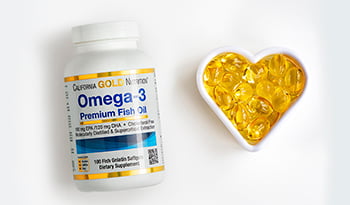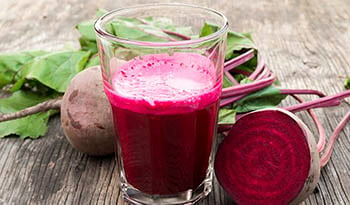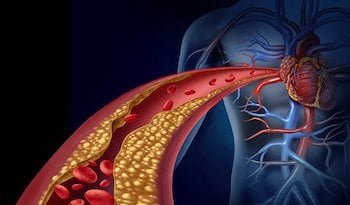16 naturalnych sposobów na wsparcie zdrowia serca

Choroby serca są głównym zabójcą w Stanach Zjednoczonych, Europie i Azji. Niestety, ponieważ coraz więcej krajów przyjmuje zachodni styl życia zamiast diety przodków, choroby serca będą nadal postępować. W samych Stanach Zjednoczonych zgony z powodu chorób serca i naczyń krwionośnych niepotrzebnie zabijają prawie 1 milion osób rocznie. Wysokie ciśnienie krwi jest jednym z głównych czynników ryzyka chorób serca - ponad 1 miliard z 7,6 miliarda ludzi na świecie ma wysokie ciśnienie krwi.
Ból w klatce piersiowej jest główną przyczyną wizyt na pogotowiu. Po ukończeniu szkoły medycznej często pytano mnie, dlaczego wybrałem podstawową opiekę zdrowotną, a konkretnie medycynę rodzinną. Głównym powodem było moje zainteresowanie medycyną prewencyjną. Zawsze powtarzałem: "Wolę pomagać pacjentom w zapobieganiu zawałowi serca, niż próbować go leczyć, gdy już do niego dojdzie". Jestem przekonany, że podążam właściwą drogą.
Spożywanie zdrowej dla serca diety, niepalenie i uczestnictwo w rutynowych ćwiczeniach to trzy najważniejsze rzeczy, które można zrobić, aby zapobiec chorobom serca. i udział w rutynowych ćwiczeniach to trzy najważniejsze rzeczy, które można zrobić, aby zapobiec chorobom serca. Te trzy rzeczy są ważniejsze niż jakikolwiek lek przepisany przez lekarza.
Czynniki ryzyka chorób serca
- Wysokie ciśnienie krwi - sprawia, że serce pracuje ciężej niż jest do tego przeznaczone
- Palenie - powoduje uszkodzenie naczyń krwionośnych i sprzyja zatykaniu się tętnic
- Cukrzyca - powoduje uszkodzenie oksydacyjne naczyń krwionośnych
- Otyłość - dodatkowo obciąża serce
- Podwyższony poziom homocysteiny - powoduje oksydacyjne uszkodzenie naczyń krwionośnych
- Podwyższony poziom białka C-reaktywnego, markera stanu zapalnego (Dowiedz się więcej o stanie zapalnym)
- Historia rodzinna chorób serca - zdrowy tryb życia może zmniejszyć to ryzyko
- Wysoki poziom cholesterolu - przyczynia się do zatykania tętnic
- Podwyższony poziom LDL (złego cholesterolu) - przyczynia się do zatykania tętnic
- Podwyższony poziom trójglicerydów - przyczynia się do zatykania tętnic
- Podwyższony poziom Lp(a) we krwi - genetyczny czynnik ryzyka
- Dieta uboga w owoce i warzywa - osobie brakuje przeciwutleniaczy potrzebnych do ochrony
- Dieta bogata w pokarmy pochodzenia zwierzęcego - hormony i substancje chemiczne w produktach zwierzęcych zwiększają ryzyko
- Bezdech senny/brak snu - obciąża serce
- Przewlekły stres - podnosi poziom kortyzolu, co sprzyja chorobom serca i stwardnieniu tętnic.
- Depresja/lęk - podnosi poziom kortyzolu, co sprzyja chorobom serca
- Nierozwiązany konflikt - podnosi poziom kortyzolu, co sprzyja chorobom serca
- Poczucie winy - podnosi poziom kortyzolu, który sprzyja chorobom serca
- Skośne załamanie płatka ucha - genetyczny czynnik ryzyka
- Łysienie typu męskiego - genetyczny czynnik ryzyka
Im więcej czynników ryzyka występuje u danej osoby, tym wyższe jest ryzyko. Obecność kilku czynników ryzyka nie oznacza, że dana osoba na pewno będzie miała zawał serca lub udar mózgu. Dlatego też zmniejszenie jak największej liczby czynników ryzyka jest bardzo ważne dla zmniejszenia ryzyka chorób serca, zawału serca, udaru mózgu i ostatecznie śmierci.
Leki mogą pomóc zmniejszyć czynniki ryzyka
Współczesna medycyna dysponuje kilkoma narzędziami, które mogą być pomocne w ograniczaniu czynników ryzyka. U osób z grupy ryzyka leki mogą odgrywać bardzo ważną rolę, zwłaszcza gdy dieta, styl życia i suplementy nie są wystarczające. Niestety, codzienne przyjmowanie leków jest jedynym środkiem, do którego wielu się zobowiąże. Jest to jednak niebezpieczna strategia. Lekarze stosują leki obniżające ciśnienie krwi i obniżające poziom cholesterolu, aby spróbować zmniejszyć ryzyko, ale częścią równania powinno być również prowadzenie zdrowszego stylu życia.
Żywność dla zdrowego serca
Wybór odpowiedniej żywności do spożycia jest jednym z najważniejszych sposobów zapobiegania chorobom serca i obniżania stanu zapalnego w tętnicach i sercu. Korzyści dla zdrowia serca diety śródziemnomorskiej zostały udowodnione w wielu badaniach. Badanie przeprowadzone w 2013 roku w New England Journal of Medicine, na przykład, stwierdzono, "Wśród osób z wysokim ryzykiem sercowo-naczyniowym, dieta śródziemnomorska uzupełniona oliwą z oliwek extra vergine lub orzechami zmniejszyła częstość występowania poważnych zdarzeń sercowo-naczyniowych.".
Dieta bogata w owoce, warzywa i fasolę jest kluczowa, ale różnorodność innych pokarmów może pomóc:
- Orzechy - niesolone orzechy brazylijskie, orzeszki piniowe, migdały, orzechy nerkowca i orzechy włoskie. Orzechy są bogate w kwas linolowy, unikalny, zdrowy, przeciwzapalny kwas tłuszczowy omega-6.
- Nasiona - niesolone nasiona dyni, chia i słonecznika
- Owoce - organiczne świeże owoce. 4 porcje dziennie, minimum
- Lignany dietetyczne - występujące w siemieniu lnianym , zielonej herbacie i truskawkach . , zielonej herbacie i truskawkach .
- Zielone warzywa liściaste - między innymi kapusta włoska, szpinak i jarmuż. 6 porcji dziennie
- Produkty sojowe - organiczne tofu, edamame, miso, tempeh
- Ryby - jedz ryby dzikie (nie hodowlane), ale nie częściej niż raz w tygodniu ze względu na możliwe zanieczyszczenie rtęcią (ryby o niskiej zawartości rtęci obejmują pstrąga, sieję, łososia, sardele i wiele innych).
- Czerwone mięso i drób - jedz tylko mięso karmione trawą i wolne od hormonów oraz drób z wolnego wybiegu
- Bardzo bogata oliwa z oliwek - bogata w kwas oleinowy, kwas tłuszczowy omega-9. Gotuj na oliwie z oliwek tylko w niskich i średnich temperaturach.
- Olej kokosowy - idealny do gotowania w wysokich temperaturach i zdrowszy niż olej rzepakowy
- Lekki olej sezamowy - dopuszczalny do gotowania w wysokich temperaturach, ma różne korzyści zdrowotne
- Zielona herbata - dobra dla serca.
- Oczyszczona woda - unikaj słodkich napojów
Suplementy dla zdrowia serca
Przyjmowanie suplementów jest częścią schematu, który wiele osób stosuje w celu poprawy zdrowia układu sercowo-naczyniowego.
witaminy C
Witamina C, czyli kwas askorbinowy, jest kluczową witaminą i odgrywa znaczącą rolę w kolagenie, głównego składnika tętnic. Według badania z 2009 roku opublikowanego w The American Journal of Clinical Nutrition, w którym przebadano mieszkańców Stanów Zjednoczonych. , w którym przebadano mieszkańców Stanów Zjednoczonych, ponad 7 procent osób w wieku sześciu lat i starszych miało niedobór witaminy C na podstawie badań krwi. Ponad połowa ankietowanych spożywała nieoptymalne ilości w swojej diecie. Poziom witaminy C jest również niższy u osób palących tytoń. Badania pokazują, że dieta bogata w pokarmy zawierające witaminę C jest dobra dla serca . Badanie z 2017 roku opublikowane w Journal of Nutritional Biochemistry wykazało, że owoce dzikiej róży, które są bogate w witaminę C, pomagają zapobiegać miażdżycyprekursorowi chorób serca.
Witamina D
Niedobór witaminy D jest czynnikiem ryzyka chorób serca zgodnie z badaniem z 2013 roku w . Nutrients. . Badanie przeprowadzone na Uniwersytecie Harvarda wykazało, że osoby z wyższym poziomem witaminy D we krwi miały o 80% mniejsze ryzyko zawału serca w porównaniu do osób z najniższym poziomem. Badanie przeprowadzone w Niemczech wykazało, że osoby z niższym poziomem witaminy D we krwi były pięciokrotnie bardziej narażone na śmierć z powodu nagłej śmierci sercowej w porównaniu do osób z wyższym poziomem witaminy D we krwi.
Dodatkowo, badanie z 2017 r. wykazało, że "... poziom witaminy D we krwi był znacznie niższy u pacjentów z zawałem serca, szczególnie w Ameryce i Azji, a wystarczający poziom witaminy D we krwi może chronić przed wystąpieniem zawału serca". Sugerowana dawka: Witamina D 2,000-5,000 IU dziennie, przez całe życie.
Omega-3 Fish Oil
Niezbędne nienasycone kwasy tłuszczowe omega-3 składają się głównie z kwasu eikozapentaenowego (EPA) i kwasu dokozaheksaenowego (DHA). . Badanie przeprowadzone w 2014 roku w Nutrition Journal wykazało, że większość Amerykanów nie spożywa wystarczającej ilości olejków eterycznych omega-3. Można je znaleźć w różnych źródłach żywności, w tym w rybach (makrela, dorsz i łosoś należą do najbogatszych), orzechach włoskich, nasionach chia, nasiona lnu, nasiona konopii natto.
Badanie z 2017 roku opublikowane w Future Science wykazało, że oleje omega-3 mogą zmniejszać stan zapalny prowadzący do chorób serca. Badanie przeprowadzone w 2017 roku w Atherosclerosis wykazało, że wyższy poziom kwasów omega-3 we krwi może zmniejszyć śmiertelność z powodu chorób serca o 30 procent.
Firmy farmaceutyczne produkują i sprzedają pacjentom olej rybny klasy farmaceutycznej, który, jak wykazano, obniża poziom trójglicerydów o 50 procent. Jednak recepty niefarmaceutyczne robią to samo za ułamek kosztów. Sugerowana dawka: Olej rybny Omega-3 1200 mg dziennie lub 3600 mg dziennie.
Olej z kryla
Olej z kryla jest przyjmowany przez wielu jako alternatywa dla omega-3 oleju rybnego. . Olej z kryla może pomóc zmniejszyć czynniki ryzyka chorób serca. Olej z kryla może obniżać poziom trójglicerydów, czyli rodzaju tłuszczu krążącego we krwi.
Olej z kryla obniża równieżLDL (zły) cholesterol, główny czynnik ryzyka chorób serca. Badanie przeprowadzone w 2017 r. na 662 pacjentach w Nutrition Reviews wykazało, że poziom LDL może zostać obniżony u osób spożywających olej z kryla. Inne badania wykazały spójne wyniki. Sugerowana dawka: Olej z kryla 500 mg do 2000 mg dziennie (alternatywa dla oleju rybiego)
Koenzym Q10
Koenzym Q10 (CoQ10) odgrywa ważną rolę w zdrowiu mitochondriów, które są siłą napędową naszych komórek. Ponieważ serce jest najbardziej aktywnym ze wszystkich narządów, produkuje i wymaga najwięcej CoQ10, aby sprostać wymaganiom metabolicznym. Jednak u osób z chorobami serca wymagane są wyższe poziomy CoQ10.
Badanie z 2017 r., w którym dokonano przeglądu 14 innych badań, wykazało ważną korzyść ze stosowania CoQ10 - wyniki wykazały, że osoby przyjmujące CoQ10 były o 31% mniej narażone na śmierć z powodu powikłań zastoinowej niewydolności serca.
Badanie z 2014 roku opublikowane w Medical Science Monitor wykazało, że 50 mg koenzymu Q10, przyjmowane dwa razy dziennie, może być korzystne w zmniejszaniu bólów mięśni spowodowanych przez leki na receptę zawierające statyny. Inne badania były sprzeczne. Koenzym Q10 może również obniżać poziom złego cholesterolu (LDL), trójglicerydów i LP(a) we krwi. Sugerowana dawka: CoQ10 -100 mg trzy razy dziennie lub 300 mg raz dziennie.
Czerwony ryż drożdżowy (RYR)
Badanie z 2008 r. wykazało, że RYR, w połączeniu ze zmianą stylu życia i suplementami omega-3 oleju rybnego , LDL (zły) cholesterol może być obniżony nawet o 42 procent - wynik podobny do leków takich jak atorwastatyna (Lipitor).
Inne badanie z 2008 roku z Chin opublikowane w American Journal of Cardiologyobejmowało prawie 5000 osób, które przyjmowały Czerwony Ryż Drożdżowy przez prawie 5 lat. Naukowcy doszli do wniosku, że długoterminowa terapia RYR znacznie zmniejszyła nawroty zawałów serca, zapobiegła nowym zawałom serca i obniżyła ryzyko zgonu o 33%. Badacze stwierdzili, że RYR był bezpieczny i dobrze tolerowany.
Badanie z 2015 r. wykazało podobne wyniki, co doprowadziło naukowców do wniosku, że "...RYR może być bezpieczną i skuteczną opcją leczenia dyslipidemii (wysokiego poziomu cholesterolu) i redukcji ryzyka sercowo-naczyniowego u pacjentów nietolerujących statyn". Innymi słowy, doszli do wniosku, że RYR jest dobrą alternatywą dla pacjentów, którzy nie tolerują leków obniżających poziom cholesterolu.
Spirulina
Spirulina, silny przeciwutleniacz, stanowi kolejną broń w arsenale obniżającym poziom cholesterolu. Badanie przeprowadzone w 2008 roku na populacji meksykańskiej wykazało, że spirulina może obniżyć poziom cholesterolu i ciśnienie krwi u badanych osób.
Nowsze badanie z 2014 roku wykazało, że 1 gram spiruliny przyjmowany codziennie może obniżyć całkowity poziom cholesterolu o 16 procent, gdy jest przyjmowany przez 12 tygodni. Obniża również poziom trójglicerydów i LDL (złego) cholesterolu. Badanie z 2015 roku potwierdziło korzyści spiruliny w zakresie obniżania poziomu cholesterolu. Dopuszczalne jest przyjmowanie spiruliny oprócz leków obniżających ciśnienie na receptę.
Spirulina może być stosowana jako suplement, a wielu producentów sprzedaje ją w postaci tabletek lub proszku . Formuła proszku jest najlepsza do dodawania do żywności. Jeśli używasz spiruliny w proszku, zalecam dodanie jej do smoothie.
Inne suplementy zdrowe dla serca
- Chelat magnezu - pomaga rozluźnić serce i tętnice
- L-karnityna - pomaga zoptymalizować funkcje mitochondriów, ważne dla osób z zastoinową chorobą serca
- L-arginina - aminokwas, który jest pomocny przy dusznicy bolesnej i zastoinowej niewydolności serca.
- Kwas foliowy lub metylo-folian - pomaga obniżyć homocysteinę, ryzyko chorób serca.
- D-ryboza - teoretycznie pomocna u osób z niewydolnością serca
- Niacyna - pomaga zwiększyć poziom dobrego cholesterolu (HDL). Zaczerwienienie twarzy jest częstym skutkiem ubocznym.
- Witamina B12 lub metylokobalamina - pomaga obniżyć homocysteinę, ryzyko chorób serca
- Olejki eteryczne - rumianek, wintergreen, mięta pieprzowa i lawenda. Może być rozpylany w powietrzu lub przyjmowany wewnętrznie. Pomaga zmniejszyć stres, który może negatywnie wpływać na serce.
Prowadzić zdrowy dla serca tryb życia
Choroba serca jest głównym zabójcą ludzi na całym świecie. Zaprzestanie palenia tytoniu, zdrowa dieta bogata w owoce i warzywa oraz rutynowe ćwiczenia mogą zapobiec przedwczesnej śmierci z powodu chorób serca u osób, które wybrały zdrowszy styl życia. Chodzenie co najmniej 10 000 kroków dziennie jest dobrym celem dla większości. Dobry sen odgrywa również ważną rolę w zapobieganiu chorobom serca. Często ludzie wybierają witaminy i suplementy, aby pomóc w dalszej kontroli czynników ryzyka i poprawie wyników, zwłaszcza gdy zmiany w diecie i stylu życia nie są wystarczające.
Referencje:
- Pierwotna profilaktyka chorób układu krążenia z zastosowaniem diety śródziemnomorskiej Ramón Estruch, M.D., Ph.D., Emilio Ros, M.D., Ph.D., et. Al N Engl J Med 2013; 368:1279-1290April 4, 2013DOI: 10.1056/NEJMoa1200303
- Journal of The American College of Nutrition 2017, tom 36. Mp 6. 434-441 Związek między fitoestrogenami w moczu a CRP w ciągłym badaniu National Health and Nutrition Examination Survey
- Am J Clin Nutr. 2009 Nov;90(5):1252-63. doi: 10.3945/ajcn.2008.27016. Epub 2009 Aug 12.
- Heart Advis. 2015 Oct;18(10):10.
- J Nutr Biochem. 2017 Jun;44:52-59. doi: 10.1016/j.jnutbio.2017.02.017. Epub 2017 Mar 21.
- Kienreich K, Tomaschitz A, Verheyen N, et al. Witamina D i choroby układu krążenia. Nutrients. 2013;5(8):3005-3021. doi:10.3390/nu5083005.
- Papanikolaou Y, Brooks J, Reider C, Fulgoni VL. Dorośli Amerykanie nie spełniają zalecanych poziomów spożycia ryb i kwasów tłuszczowych omega-3: wyniki analizy wykorzystującej dane obserwacyjne z NHANES 2003-2008. Nutrition Journal. 2014;13:31. doi:10.1186/1475-2891-13-31.
- Bäck M. Kwasy tłuszczowe omega-3 w miażdżycy i chorobie wieńcowej. Future Science OA. 2017;3(4):FSO236. doi:10.4155/fsoa-2017-0067.
- Atherosclerosis. 2017 Jul;262:51-54. doi: 10.1016/j.atherosclerosis.2017.05.007. Epub 2017 maj 6.
- Sorin Ursoniu, Amirhossein Sahebkar, et. al. for the Lipid and Blood Pressure Meta-analysis Collaboration Group; Lipid-modifying effects of krill oil in humans: systematic review and meta-analysis of randomized controlled trials, Nutrition Reviews, Volume 75, Issue 5, 1 May 2017, Pages 361-373, https://doi.org/10.1093/nutrit/nuw063
- Lei L, Liu Y. Skuteczność koenzymu Q10 u pacjentów z niewydolnością serca: metaanaliza badań klinicznych. BMC Cardiovascular Disorders. 2017;17:196. doi:10.1186/s12872-017-0628-9.
- Skarlovnik A, Janić M, Lunder M, Turk M, Šabovič M. Coenzyme Q10 Supplementation Decreases Statin-Related Mild-to-Moderate Muscle Symptoms: Randomizowane badanie kliniczne. Medical Science Monitor : International Medical Journal of Experimental and Clinical Research. 2014;20:2183-2188. doi:10.12659/MSM.890777.
- Suksomboon, N., Poolsup, N. i Juanak, N. (2015), Wpływ suplementacji koenzymem Qna profil metaboliczny w cukrzycy: przegląd systematyczny i metaanaliza. J Clin Pharm Ther, 40: 413-418. doi:10.1111/jcpt.12280
- Amirhossein Sahebkar, Luis E. Simental-Mendía, Claudia Stefanutti, Matteo Pirro, Suplementacja koenzymem Q10 zmniejsza stężenie lipoproteiny(a) w osoczu, ale nie obniża innych wskaźników lipidowych: Przegląd systematyczny i metaanaliza, Pharmacological Research, 2016, 105, 198.
- Simwastatyna a terapeutyczne zmiany stylu życia i suplementy: Randomized Primary Prevention Trial Becker, David J. et al. Mayo Clinic Proceedings , Volume 83 , Issue 7 , 758 - 764
- Lipids Health Dis. 2007 Nov 26;6:33.
- Sci Food Agric. 2014 Feb;94(3):432-7. doi: 10.1002/jsfa.6261. Epub 2013 Jul 10.
- Biomed Res Int. 2015;2015:486120. doi: 10.1155/2015/486120. Epub 2015 Jan 22.
WYŁĄCZENIE ODPOWIEDZIALNOŚCI:Celem niniejszej Strefy Zdrowia nie jest stawianie diagnoz...

















































































 Spis treści
Spis treści














